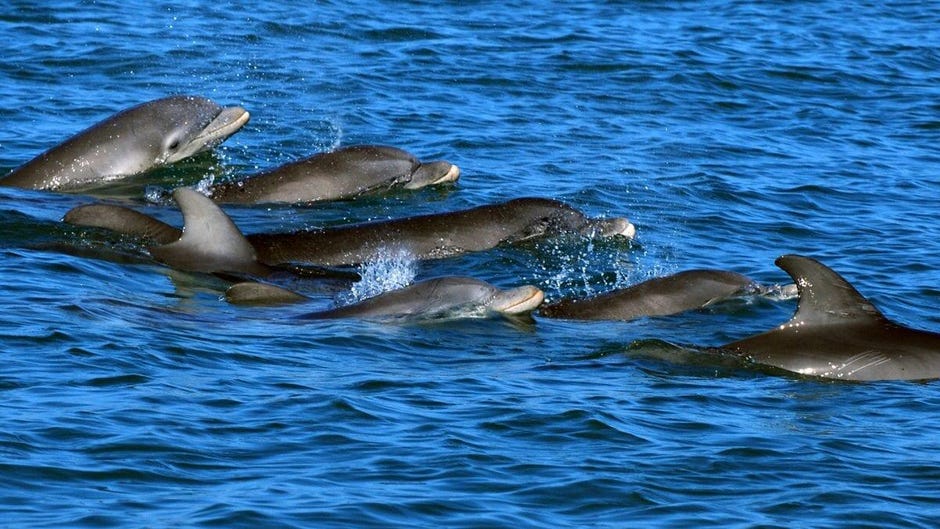Want to Talk to Dolphins? Researchers Win $100K for Cracking the Whistle Code with AI

If any dolphins are reading this document: greetings!
A group of researchers examining a pod of dolphins off the coast of Florida has been awarded the first $100,000 Coller Dolittle Challenge prize, set up to grant study on inter-species communication algorithms .
The American-led group, headed by Laela Sayigh of the Woods Hole Oceanographic Institution The researchers discovered that one kind of whistle employed by dolphins serves as an alert signal. Additionally, another whistle they examined is utilized when dolphins encounter unforeseen or unknown circumstances. To conduct this study, the team relied on non-intrusive hydrophone technology, offering proof that dolphins might use these whistles akin to how humans use words within their social groups.
Capturing the sounds is just the beginning. Researchers will use AI to continue deciphering the whistles to try to find more patterns.
"The main thing stopping us cracking the code of animal communication is a lack of data. Think of the 1 trillion words needed to train a large language model like ChatGPT. We don't have anything like this for other animals," said Jonathan Birch, a professor at the London School of Economics and Politics and one of the judges for the prize.
"That’s why initiatives such as the Sarasota Dolphin Research Program are essential. Over four decades, they have amassed an extensive database of dolphin vocalizations. Thanks to this collective effort, researchers like Laela Sayigh and her colleagues can employ deep learning techniques to study these sounds with greater precision. Perhaps someday, they might decipher the dolphins' communication codes," he stated.
The accolade was presented during a ceremony celebrating the efforts of four international teams. Besides focusing on the dolphin initiative, scientists also explored how nightingales, marmoset monkeys, and cuttlefish interact with each other.
The challenge is a joint effort between the Jeremy Coller Foundation and Tel Aviv University. Submissions for next year open up in August.
The world of dolphins is merely scratching the surface.
Exploring animals and attempting to uncover the mysteries of their communication isn’t novel; however, artificial intelligence is accelerating the development of more extensive databases.
"Inevitable breakthroughs," asserts Kate Zacarian, CEO and co-founder of Earth Species Project , a nonprofit organization based in California that also focuses on overcoming linguistic obstacles to communicate with the animal kingdom.
"Much like how artificial intelligence has transformed areas such as medical research and materials science, we also see an analogous chance to apply these advancements to the realm of animal communication studies, thereby equipping scientists in this field with unprecedented tools," Zacarian stated.
Zacarian commended Sayigh's team for their victory, stating that it would contribute to greater acknowledgment of the field dedicated to understanding non-human animal communication. Additionally, he noted that this achievement might draw further focus onto how artificial intelligence can transform such investigative work.
The AI systems not only operate at greater speeds — they also enable completely novel forms of investigation," she stated. "We are transitioning from deciphering individual signals to examining communication as a complex, ever-evolving, and structured process — one that exceeds the capabilities of our human minds but can be tackled by extensive AI models.
Recently, Earth Species launched an open-source extensive audio language model aimed at interpreting animal vocalizations named NatureLM-audio The organization is presently collaborating with biologists and ethologists to research various species such as carrion crows, orcas, jumping spiders, and more. They intend to publish some of their discoveries later this year, according to Zacarian.
Initially released on May 19, 2025 at 9:19 AM Pacific Time.
Belum ada Komentar untuk "Want to Talk to Dolphins? Researchers Win $100K for Cracking the Whistle Code with AI"
Posting Komentar